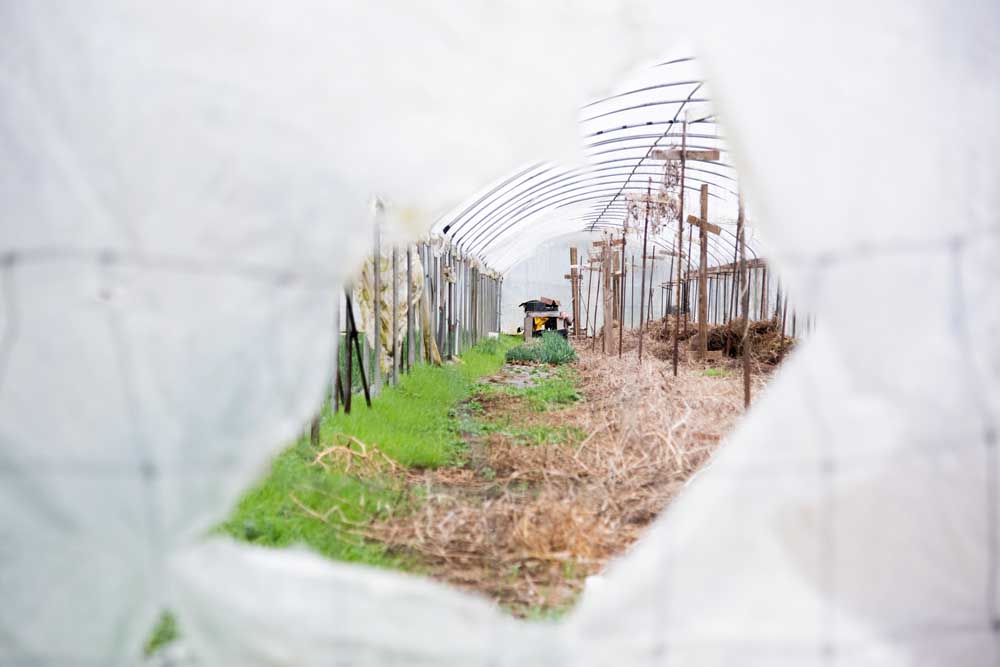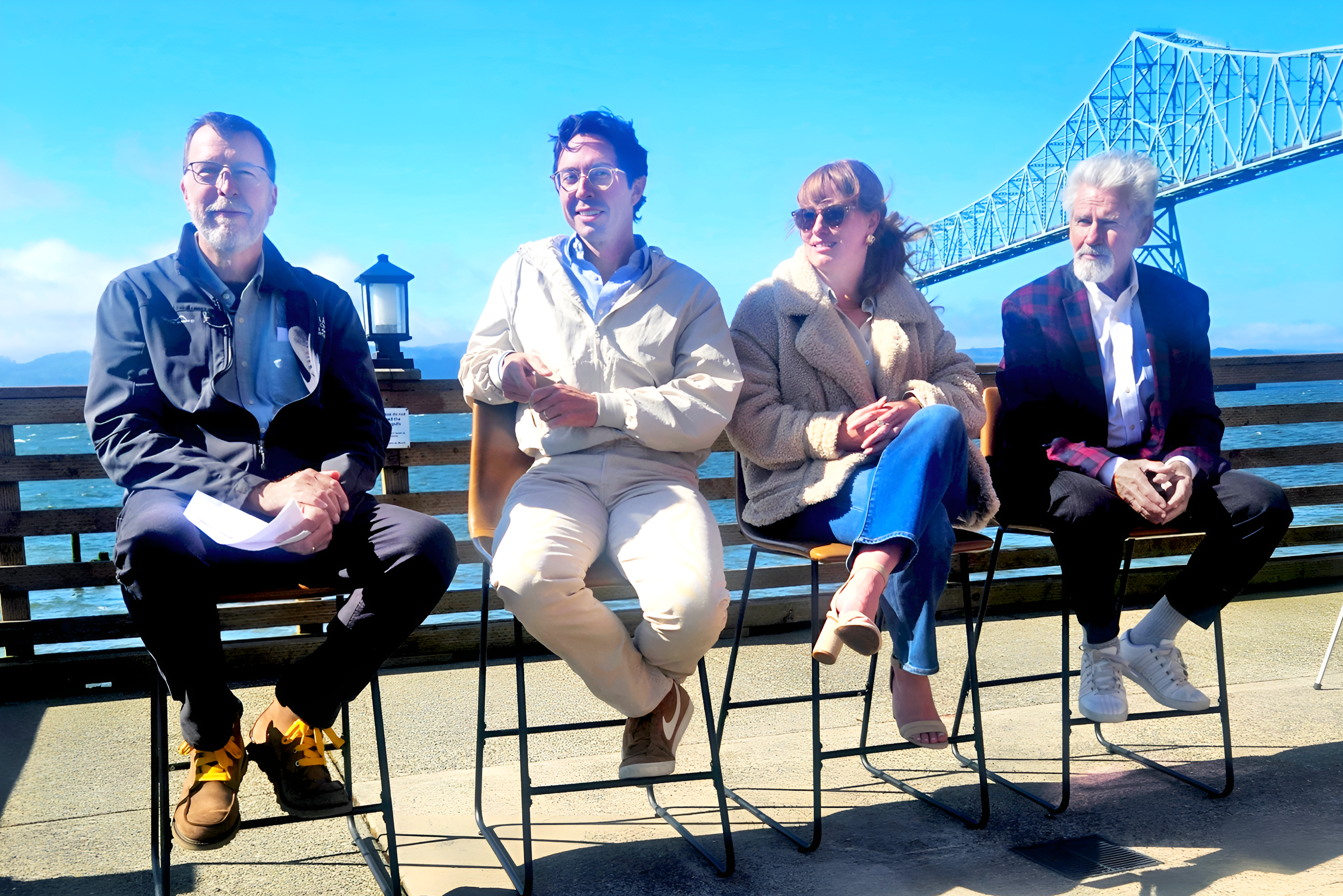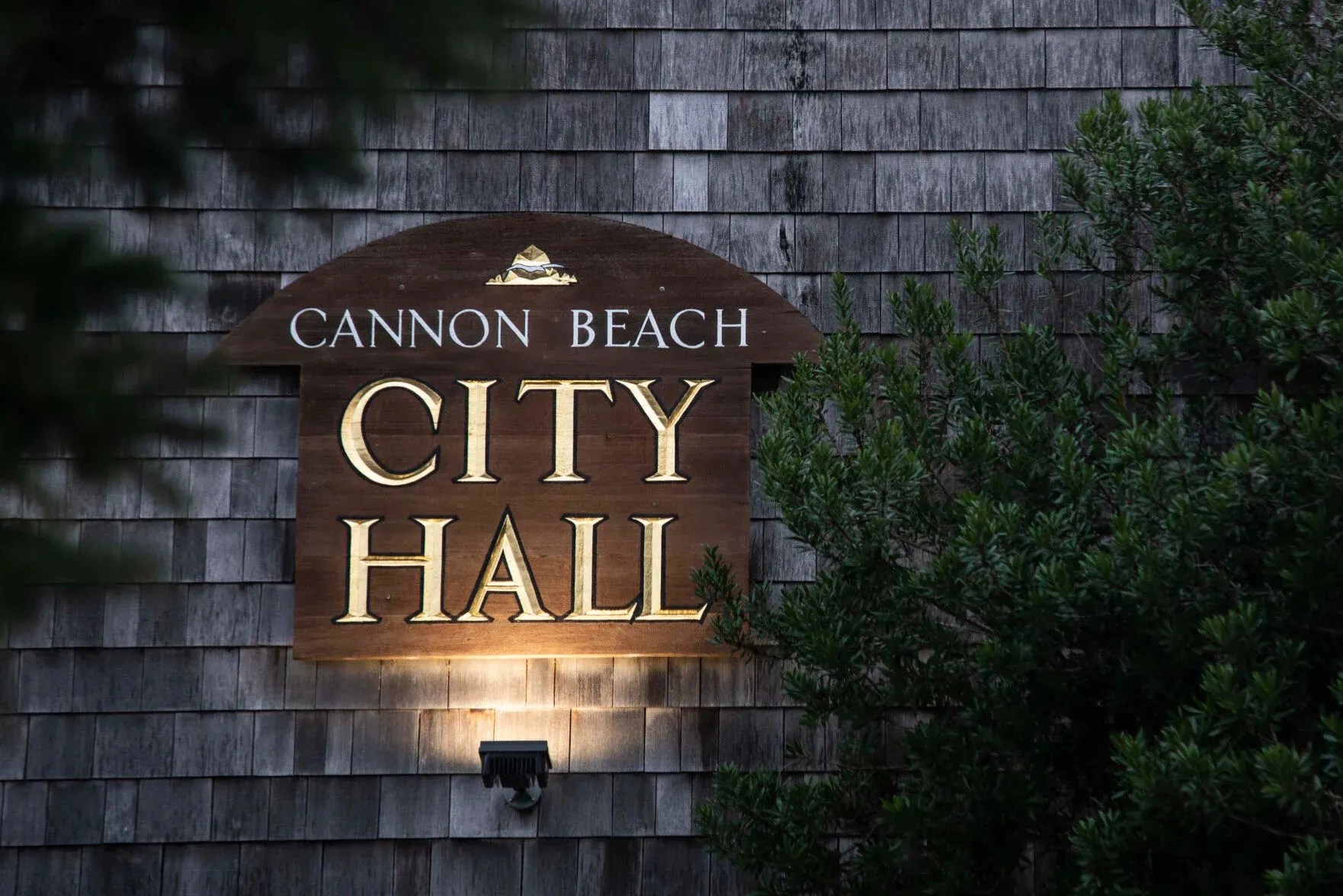‘He was a legend in his own right’
Published 12:15 am Wednesday, March 9, 2022

- Beyond a tear in a greenhouse’s shell lies an untended area at Kingfisher Farms.
NEHALEM — Inside his home on a 16-acre organic farm, Jeff Trenary made restaurant quality meals in a kitchen so messy that loved ones called it off-putting.
“My dad was straight up the best chef I’ve ever met,” said Lucy Wild, Trenary’s daughter. She said guests would enter the home, look around, and immediately doubt the quality of the meal they agreed to partake in.
“And then he’d bust out this, like, million-star meal. These four-star meals? Nope. Get out of here, this is a million star meal,” she said.
Trenary created a full feast every night, she said, and nearly always with a new recipe. He used his restaurant connections on the North Coast and Portland to get details on menu items and would try them at home. He excelled in ingredients that surprised his guests, like frogs and oxtail and bone marrow.
Trenary, who died of cancer in early February, loved to feed people. He spent his life working hard to make sure they were eating the best food possible.
Sometimes called the godfather of organic farming, Trenary started the first organic farm on the North Coast after buying a property bordering the North Fork Nehalem River in 1986.
Through Kingfisher Farms, he spent the following decades cultivating the organic farming industry of the region, mentoring young farmers and sharing his knowledge.
The farm is best known for its high-quality salads, delivered to restaurants and hotels. His produce even made it out to the James Beard House restaurant in New York City.
Despite physically draining radiation treatments and losing his home to a fire last July, his daughter said Trenary was largely private about his hardships.
“He didn’t want people to worry about him, and so he’d always tell people, ‘I’m doing pretty good. It’s getting better. I’m about to get better,’” Wild said. He still talked about returning to Norway, where he once spent three years doing a boat-building apprenticeship.
An old surfboard serves as his headstone
Family and friends buried Trenary on his farm, wrapped in a Pendleton blanket inside a wooden box built by his son, Clinton Johnson. They surrounded his body with moss, sweet grass and flowers along with photos of his life surfing, traveling and raising his three children: Mercedes Trenary, Wild and Johnson.
It wasn’t his first choice of burial — which was to go out in a blazing pile of cedar wood — because at-home cremations aren’t legal in Oregon. But Wild said she’s glad he returned to the Earth without any chemicals in his body. An old surfboard serves as his headstone.
Trenary almost single-handedly transformed the property he was laid to rest in. In the early years of the farm, he would drop his kids off at Fire Mountain School in Arch Cape and tend to the earth until it was time to pick them back up.
A few weeks after his death, neighbor Larry Smieja leaned out of the open door of his truck, cigarette burning between his fingers, to talk with Brian O’Dea, the new owner of Kingfisher Farms.
They laughed, recalling that when Trenary first bought the property he opted to clear the blackberries crawling across the pasture by ramming a $200 truck into them repeatedly. They imagined the berries flying left and right, brambles breaking.
“He had fun with it,” O’Dea said. “Jeff loved to have fun. He was a great surfer. He was loved by so many people, all the clients, anyone from the farmers market, neighbors, the restaurants and hotels in Portland and along the coast. He was a legend in his own right.”
Trenary drove into a lot of things head on, including business.
“He was not the easiest person. He was really stubborn, and his way was the only way. But that also created space for him in the world to walk his own super unique path. And nobody could tell him what to do or how to do it. He had his own timing and his own process,” Wild said.
Chef John Newman, the owner of Newmans at 988 in Cannon Beach, was Trenary’s best friend.
Trenary provided produce for Newman’s restaurant. He summarized Trenary’s approach to sales as, “I got the food, and you want it.”
“He liked being treated like the celebrity farmer,” Newman said, and laughed. “That was his jam.”
Newman met Trenary in 1998 during a produce delivery and they grew close through philosophical discussions and a mutual love of food. He said the best thing about Trenary was he took people at their word, not their appearance or status.
“He decided that it was his responsibility to grow food and provide it,” Newman said. “And that’s inspiring to me.”
Newman said he appreciated Trenary’s commitment to the community. He hopes young farmers understand that the industry is about more than making money.
A costly fire
Last July, Trenary sat in a chair outside his home and watched it burn. He lost nearly everything, including personal items from raising his children, and walked out with only his phone, flip flops and a Pendleton shirt.
After that happened, the community gave back.
“I’ll go to the grocery store and I’ll try to pay them and they just tell me to leave,” Trenary told The Astorian last August. “I go to my car and just sit there and cry because it’s just so amazing that so many people love and care about me.”
A GoFundMe for recovery raised nearly $50,000, with comments from longtime customers and friends thanking Trenary for his work.
At that point, Trenary was already facing his cancer diagnosis.
“We spent a lot of time together in his last year. I would take him to appointments and things for his health, and try to recoup things from his loss with his house. Because he really had nothing after that,” O’Dea said.
Wild said she considers O’Dea, his wife, Maurie, and their two sons, Shane and Damian, to be family. Trenary had previously sold O’Dea half of the property, wanting to pass it on to someone he knew.
“Brian stepped up, like no problem. He just immediately started treating my dad like his dad, and caring for him like his dad. And that was incredibly selfless and really amazing,” Wild said. “And it made me realize how much he loved my dad, and I can’t think of a better person to carry on the Kingfisher name.”
Kingfisher Farms is prepping for the spring.
Under a greenhouse and behind a wire fence to keep out deer, an employee harvests turnips and radishes, gloves caked in soil. Rows of green leaves fill the space that smells like Earth, onions and basil.
O’Dea said he will continue to grow produce for the farm’s iconic salads, and hopes to continue the popular Community Supported Agriculture boxes. They’ll be focusing on bringing food to local markets in Astoria, Manzanita and Cannon Beach, and maintaining clients such as Fresh Foods and the Astoria Co+op.
He’ll be supplying Wild’s personal produce, too.
“I just want the community to know that Kingfisher Farms is rockin’, and that Brian is committed to carrying on Jeff’s legacy and that the incredible bounty of produce will continue coming,” Wild said.
O’Dea hopes to expand on what Trenary created, too. He wants to introduce new varieties of crops and build a walk-in freezer to save the blackberries still growing on the land. He intends to plant more native species along the river. He wants to build a home and a shop on the property.
For the time being, O’Dea is focusing on the invasive Japanese knotweed, more difficult to manage as an organic farm. Trenary left him tips for that, too.
“He is just such a good soul, and loved by so many,” O’Dea said. “I feel really blessed to be the steward of his land now.”






